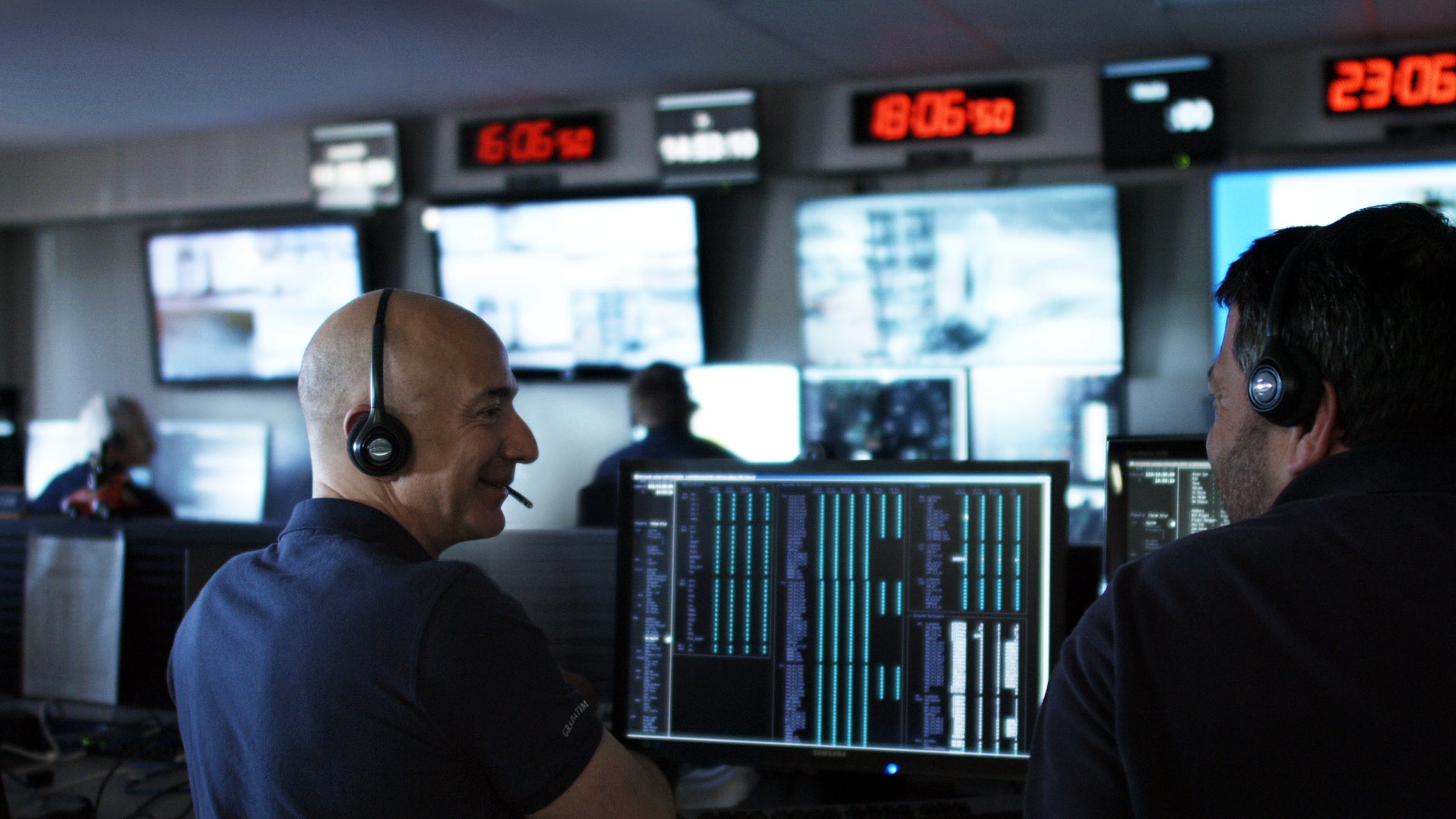Jeff Bezos’ space company is a lot like Amazon was in 1994
Jeff Bezos has a talent for persuading Wall Street to back radically long-term investments. He’ll certainly need it if he ever decides to take his space company, Blue Origin, public.


Jeff Bezos has a talent for persuading Wall Street to back radically long-term investments. He’ll certainly need it if he ever decides to take his space company, Blue Origin, public.
If it’s hard to imagine Blue Origin being ready for an IPO, consider the experience of Amazon. It went public three years after its founding. And if you ask space industry insiders, Blue Origin today looks a lot like Amazon did at the outset.
When Bezos started Amazon in 1994, the idea of a web retailer made about as much sense as, well, a commercial rocket company today. At least this time he can look to his rival Elon Musk’s SpaceX as evidence a viable company can get off the ground in a sector dominated by legacy behemoths.
The current market for launches is still small, and the bet for investors is on a nebulous destiny that sounds a bit crazy. In a few decades, will hundreds of people really be living and working as space miners, as even old-line space companies claim will happen? Then again, did anyone think when Amazon launched two decades ago that people would be buying groceries (from Amazon) by talking to a robot (also from Amazon) in their kitchen?
The vision to look at existing technology and business models and see a whole new market is what allowed Bezos, then an investment banker, to make Amazon. Arguably, the same thing is happening today.
At a recent meeting of the New York Society of Security Analysts to discuss the potential for space investment, experts were asked whether returns on a reasonable timescale were possible in space.
“Our old joke is, if you want to make a million in space, start with a billion,” said Rick Tumlinson, the chairman of asteroid-mining startup Deep Space Industries. “We have a few of those people showing up.”
But money isn’t the only thing falling into place for space companies backed by billionaires. By way of explanation, Tumlinson cited the comments Bezos made this week in his acceptance of the Heinlein Prize, an award for progress in commercial space, named after the science fiction writer. (Bezos donated the $250,000 award to a student space group.)
“He talked about…the reason he was able to create Amazon was because all of the pieces, the foundational pieces that he needed, already existed,” Tumlinson said, pointing out the convergence of the then-new consumer internet, the availability of old-fashioned postal delivery, and the potential cost savings from operating without physical stores. “All these pieces came together at the perfect moment, the perfect storm. At that moment, he was able to dive in.”
Space is not dissimilar, in that pieces are starting to come together: Years of NASA investment in the International Space Station, rockets, and satellite technology are now being transferred to the private sector; launch costs are falling thanks to efficient new rockets like the SpaceX’s Falcon 9 and Bezos’ recently announced New Glenn; information technology is more powerful; and there is a growing desire for more communications bandwidth around the world.
“We do stand on shoulders of giants,” Tumlinson noted. “And we also stand on the shoulders of dwarves, because the ability to go this small”—he holds up an iPhone—”allows us to do so much.”
All this means that putting money into space access can kick off a virtuous cycle: As more money is made operating in space, the easier it will be to make more money operating in space.
“For us, there’s the right policy, there’s the right technology, that if you do set up a commercial environment in space, others will come along and make use of it,” said Jeff Manber, CEO of the successful small-satellite launch company NanoRacks.
This isn’t the first time people have looked at new technology and announced a tipping point in a tough industry. But if anyone can do so with credibility, it’s Bezos.